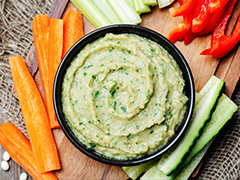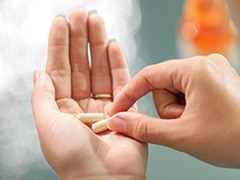Be a Food Detective

Foodborne illnesses, often known as food poisoning, occur when we eat foods that have harmful germs and viruses in them. They usually strike fast and are resolved without any major medical care. While we usually think of them as single events, sometimes the cases are part of a larger cluster of illness and can grow into an outbreak depending on the scope and severity of the illness.
About 48 million people in the U.S. are affected by food poisoning each year, and usually from the most common foods. Vegetables, fruits, dairy items, chicken, beef, pork, seafood and processed foods can all become carriers for the germs that make us sick.
But we don’t have to just wait it out. We can do something about food poisoning by taking note of any foods that have made us sick and reporting them to the right resources.
Keep Notes
If you get sick from food, try to narrow down what caused it. Food poisoning takes up to two or three days to react with your system. As a result, you’ll likely have to think beyond your most recent meal to find the bug. Work your way through what you’ve eaten, write everything down, and start to narrow from there.
Talk to Your Doctor
Your doctor has all the tools to test your blood or stool for the germs that cause food poisoning. If you think you may have food poisoning, your doctor is a good resource for uncovering exactly what has gotten into your system. Doctors also have their own tracking methods so that they can keep an eye on similar illnesses to look for trends. Remember, if you have any questions or concerns about your food-borne illness, talk to your doctor immediately or call the Nurse Line. In the event of an emergency, always call 911 or go to your local emergency services.
Report to the Health Department
This is a critical step in stemming the spread of foodborne outbreaks. Your local or state health department’s website has all the information you need to report your case correctly. Their databases track the growth and spread of illnesses and your input can help them make important decisions about product recalls or consumer warnings.
So, you don’t need to be a chemist or a detective to help keep foodborne illnesses from taking off. Do your part (once you’re healthy) to keep your doctor and health department in the loop to help keep others safe.
Article source link has expired



